My Genealogy Journey – Emily Alley
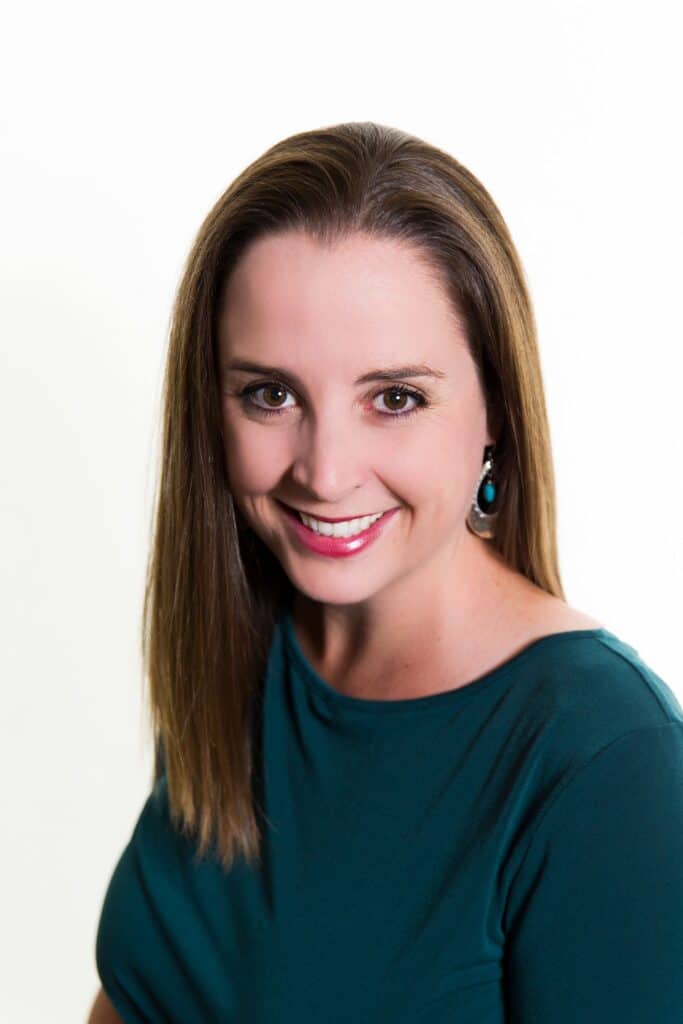 25
25Aug

“History remembers only the celebrated, genealogy remembers them all.” ~ Laurence Overmire
I’m Emily Wilbur Alley. My earliest recollection of feeling the genealogy bug was when I was sixteen. I 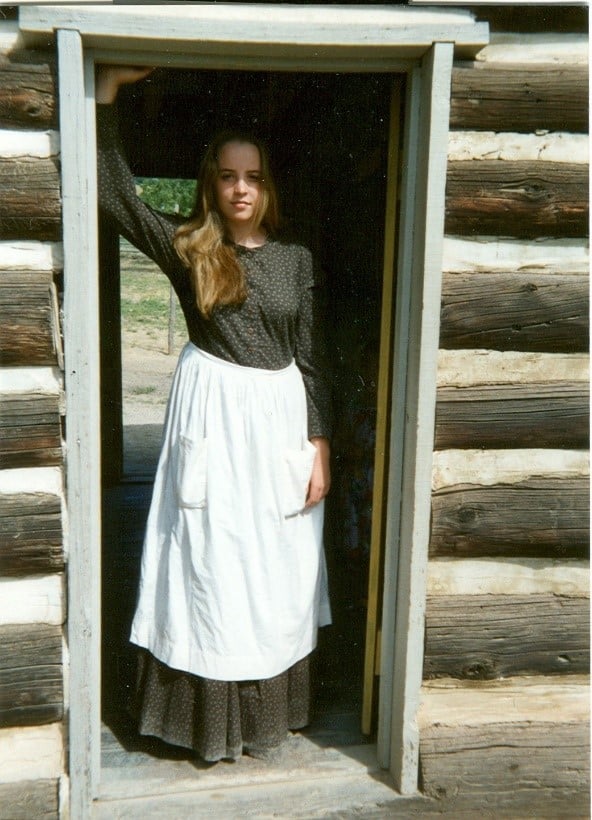 started volunteering during the summers at This is the Place Heritage Park in Salt Lake City, eager to tag along with my much cooler older sister who worked there. Donning a pioneer dress, apron, and bonnet, I felt myself transported into the magical days of “back when.” As it turned out, I really enjoyed teaching visitors about the Latter-day Saint pioneers whose faith carried them across the Plains, over the Rocky Mountains, and into the Utah Valley in the mid-1800s. Their stories came to life as I demonstrated how to cook stew over an open fire, bake bread in a Dutch oven, weave a daisy chain for my hair, piece together a rag rug, or even brain tan a hide.
started volunteering during the summers at This is the Place Heritage Park in Salt Lake City, eager to tag along with my much cooler older sister who worked there. Donning a pioneer dress, apron, and bonnet, I felt myself transported into the magical days of “back when.” As it turned out, I really enjoyed teaching visitors about the Latter-day Saint pioneers whose faith carried them across the Plains, over the Rocky Mountains, and into the Utah Valley in the mid-1800s. Their stories came to life as I demonstrated how to cook stew over an open fire, bake bread in a Dutch oven, weave a daisy chain for my hair, piece together a rag rug, or even brain tan a hide.
Years later in the spring of 2000, as I finished up my freshman year at Brigham Young University, I became quite despondent that I had no idea what major to pursue. I had enjoyed my calculus and physics classes, but nothing was quite the right fit. Registration for the following semester was upon me, and with all my required GE classes fulfilled, I had to pick a major. I felt I had wearied the Lord on the subject, but again asked for direction. This time I felt inspired to look through the entire list of college majors, give each one a 3-second consideration, and then move on. So, I booted up the old bulky PC, opened the college website, and clicked on the drop-down menu with all the majors. I went one by one, considering how I felt with each, and then moved on. When the cursor stopped on “Family History – Genealogy” my heart swelled to bursting! My entire body knew immediately this was to be my future. The only problem – I had no idea what it was! Still, I knew I had my answer and I was willing to obey. The next day I went to the counselor’s office and declared my major. I later added a minor in Business Management so I could learn how to make money with this peculiar major I’d selected.
As it turned out, I loved genealogy work! It combined everything I loved to do in school – write reports, investigative research, solve difficult puzzles, and explore history. But when the essential part of uncovering and completing family groups was added onto that, it was the complete package for me. I 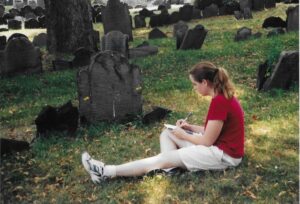 enjoyed each of my undergraduate classes but discovered a particular fondness for New England and British Isles research. I was awarded two separate research grants which took me to Maine in 2002 and England/Scotland in 2003. And I spent a summer working as an intern at the New England Historic Genealogical Society [NEHGS] in Boston, Massachusetts. I worked as a Teaching Assistant to the program director and taught introductory computer PAF classes to all the incoming family history majors.
enjoyed each of my undergraduate classes but discovered a particular fondness for New England and British Isles research. I was awarded two separate research grants which took me to Maine in 2002 and England/Scotland in 2003. And I spent a summer working as an intern at the New England Historic Genealogical Society [NEHGS] in Boston, Massachusetts. I worked as a Teaching Assistant to the program director and taught introductory computer PAF classes to all the incoming family history majors.
Once graduation came, I was launched into the “real” world to see if I really could make this Genealogy thing a career. There weren’t many family history jobs back then, and most people still didn’t understand what I was trained to do. I tried the most obvious option and went to work for Ancestry.com, which was Provo-based and only a short distance from my apartment. I worked on the newly created “Genealogy Help Team.” Our responsibilities fluctuated often, and included helping new subscribers successfully navigate the website, creating training material for employees, and sometimes just customer retention.
I left Ancestry after only a year and decided to start my own research business. Surprisingly, I acquired clients quickly due to friends I had made at NEHGS. Then a friend told me about a genealogy research company in Salt Lake City called Price and Associates (now Price Genealogy). I reached out and started working as a contract researcher for them and I’ve been working with Rick Price now for almost 20 years! That Fall, at 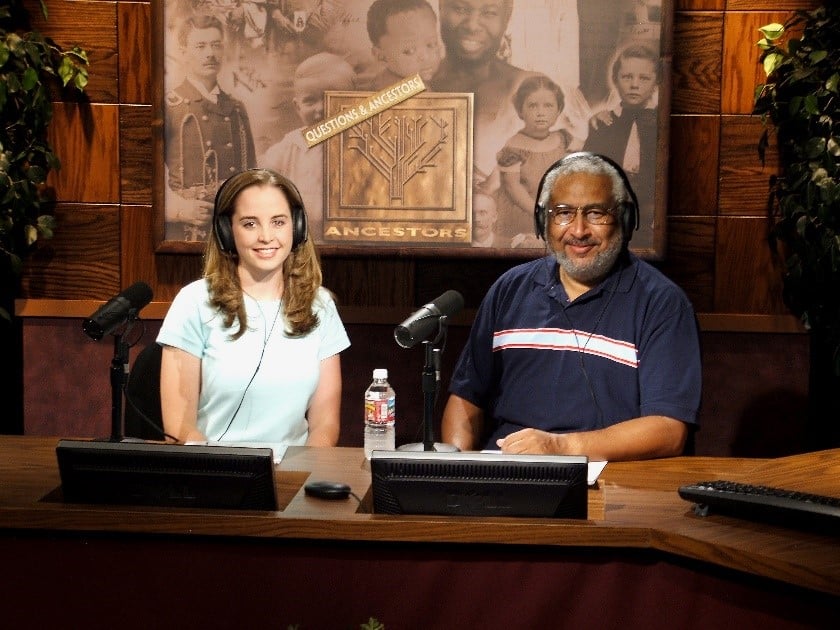 age 23, I had the great fortune of becoming the co-host of the BYU TV and radio show Questions and Ancestors, which aired for 22 episodes. The next summer, I started working as a British Reference Consultant temp at the Family History Library in Salt Lake City. In 2006, I was awarded the Young Family Historian of the Year award by BYU, which was a real honor.
age 23, I had the great fortune of becoming the co-host of the BYU TV and radio show Questions and Ancestors, which aired for 22 episodes. The next summer, I started working as a British Reference Consultant temp at the Family History Library in Salt Lake City. In 2006, I was awarded the Young Family Historian of the Year award by BYU, which was a real honor.
I had really hit the ground running and felt great about the direction of my career. My hands were in lots of different pots, which kept me intellectually stimulated and made work fun! Besides my various research jobs, I was also teaching at conferences and had been voted onto the board of the Utah Genealogical Association. 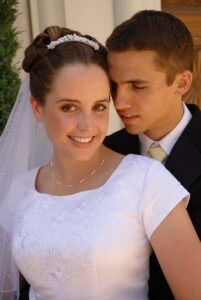 And then I met John Alley – a recent graduate of the Air Force Academy and pilot-in-training. My life got turned upside down as we quickly became engaged and then married. I found myself living across the country in the small military town of Milton, Florida, just outside of Pensacola. I had been working for Price Genealogy as their Project Editor, and they were wonderful to set me up so I could continue working remotely. But that was not to last for long. After only a short 10 months in Florida, my husband had an accident and drowned. I was four months pregnant with our first child.
And then I met John Alley – a recent graduate of the Air Force Academy and pilot-in-training. My life got turned upside down as we quickly became engaged and then married. I found myself living across the country in the small military town of Milton, Florida, just outside of Pensacola. I had been working for Price Genealogy as their Project Editor, and they were wonderful to set me up so I could continue working remotely. But that was not to last for long. After only a short 10 months in Florida, my husband had an accident and drowned. I was four months pregnant with our first child.
I moved back to Utah and my genealogy work was put on hold for a while as I worked through my grief, had my son, and adjusted to life as a new, and single, mother. Through it all, Price Genealogy was unfathomably patient and kind, never pressuring me to return to work sooner than I was ready. But eventually, I did find the courage to step back into the workplace and left my son with a dependable sitter. For the next 3 years I balanced working for Price Genealogy and my own clients, and raising my son.
Soon, though, I started getting a nagging in my heart for more education. I had heard about a master’s program in England at the University of Leicester in English Local History, and it really appealed to me. I also learned there was a Fulbright Scholarship available. I decided to apply, and if I got it, I would do the unthinkable and move to England with my young son. The application process took just under a year and was quite grueling. I was surprised to find that I kept making it through to the next phase, until eventually, it came down to just a handful of us. After some intense interviews, I learned I was the runner-up to a semi-pro soccer player from Florida who was going to study cancer research. I was so disappointed! But only for a few days, until I decided to go anyway! I used my late husband’s GI Bill to help me finance school, and in September 2012 I moved to Leicester, England, with my 3-year-old son.
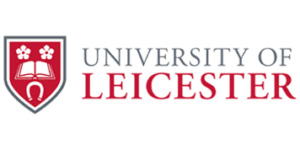 Attending university in England was a dream come true! I felt like I had come home, having roughly 98% of my ancestral heritage from the British Isles. I couldn’t have been happier. My dissertation explored the experience of Lancashire military widows
Attending university in England was a dream come true! I felt like I had come home, having roughly 98% of my ancestral heritage from the British Isles. I couldn’t have been happier. My dissertation explored the experience of Lancashire military widows 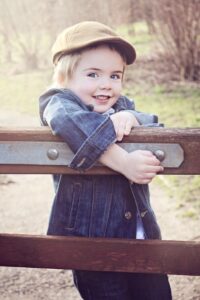 of the English civil wars between 1642 and 1679. I felt a kinship to these women who had lost their husbands, most of whom were left with small children. These largely unresearched original documents recounted their sufferings and desperate appeals to the government for any kind of relief. Using my genealogical skills, I followed up on each woman’s life and was able to validate their claims to hardship, and thus reject prior historians’ conclusions of financial manipulation. I later won the John Nichols Prize for my paper. My research jump-started a PhD program at Leicester, funded through a multi-million-dollar research grant, to continue studying the experience of civil war widows and maimed soldiers through all of England, not just Lancashire.
of the English civil wars between 1642 and 1679. I felt a kinship to these women who had lost their husbands, most of whom were left with small children. These largely unresearched original documents recounted their sufferings and desperate appeals to the government for any kind of relief. Using my genealogical skills, I followed up on each woman’s life and was able to validate their claims to hardship, and thus reject prior historians’ conclusions of financial manipulation. I later won the John Nichols Prize for my paper. My research jump-started a PhD program at Leicester, funded through a multi-million-dollar research grant, to continue studying the experience of civil war widows and maimed soldiers through all of England, not just Lancashire.
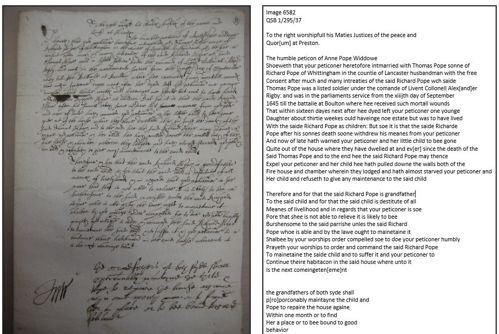
After returning to the States in 2014, I was hired by BYU-Idaho to teach their online British Isles genealogy classes, which I did for the next seven years. I also continued to do research for Price Genealogy 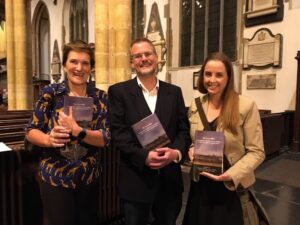 and my own clients. My first book came out in 2018, “The Great Blow: examinations and informations relating to the Great Blow in Norwich 1648,” which was a collaborative work between myself, Dr. Andrew Hopper, and Jean Agnew. I began consulting with Ancestor Seekers in 2019 and had my first speaking engagement at RootsTech in 2020. In 2023 I began working for the BYU TV show Relative Race using DNA to connect individuals to their biological family.
and my own clients. My first book came out in 2018, “The Great Blow: examinations and informations relating to the Great Blow in Norwich 1648,” which was a collaborative work between myself, Dr. Andrew Hopper, and Jean Agnew. I began consulting with Ancestor Seekers in 2019 and had my first speaking engagement at RootsTech in 2020. In 2023 I began working for the BYU TV show Relative Race using DNA to connect individuals to their biological family.
My genealogy journey has been a wildly unpredictable and fun ride! There have been some super highs and some terrible lows. After returning home from England, I battled severe anxiety and panic brought on by PTSD for many years. Trying to balance my mental health with being a single parent and a self-employed genealogist has not been easy. But I have been strengthened along the way as I’ve learned about other strong women who have done hard things. Whether they be military widows from the 1640s, or my own ancestors, like Agnes Ure who raised her three children, essentially as a single mother, in dirt-poor conditions of Driggs, Idaho, in the early 1900s. Or even women to whom I share no relation. I remember sitting at a microfilm reader sometime soon after my husband died reading in the parish registers about a mine explosion in England in the mid-1800s. Over 200 men and boys were killed. The townsfolk rallied around those widows and mothers, raising funds to 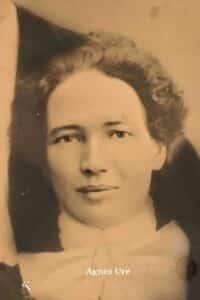 support them. Tears flowed as I felt their pain but also the love and support of their community – a feeling I have experienced myself. The more we learn about our ancestors, the more we learn that we aren’t so very different. They experienced similar highs and lows in life and passed onto us strength to overcome our own challenges. I have felt them cheering me on as I forge my way through my own mortal experience. I am so grateful that over two decades ago I was led to a profession that would allow me to get to know them, and to help others experience the joy of knowing their own ancestors.
support them. Tears flowed as I felt their pain but also the love and support of their community – a feeling I have experienced myself. The more we learn about our ancestors, the more we learn that we aren’t so very different. They experienced similar highs and lows in life and passed onto us strength to overcome our own challenges. I have felt them cheering me on as I forge my way through my own mortal experience. I am so grateful that over two decades ago I was led to a profession that would allow me to get to know them, and to help others experience the joy of knowing their own ancestors.
“There is no such thing as an insignificant life.” ~ Laurence Overmine
By Emily
